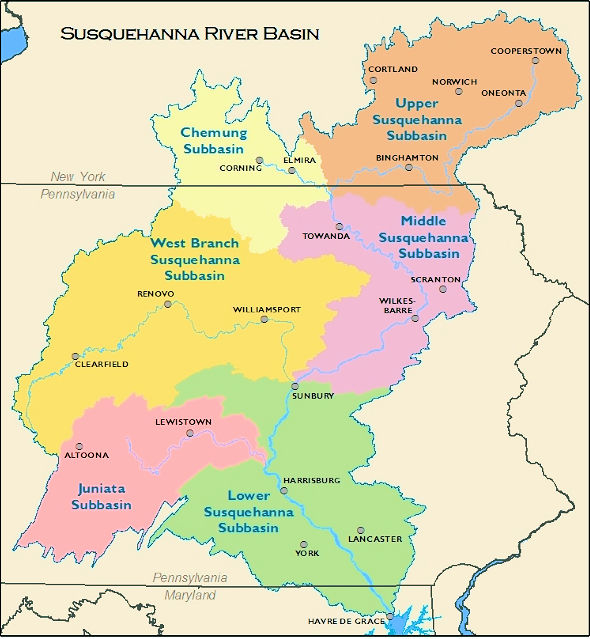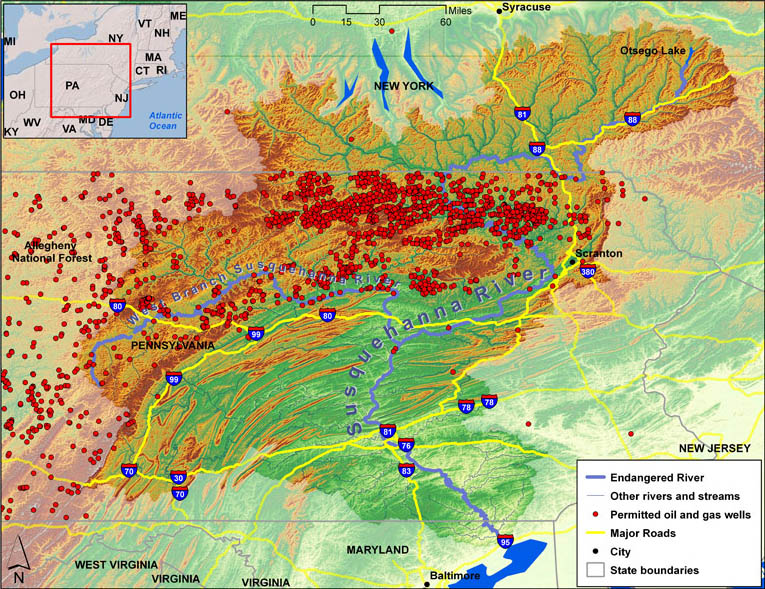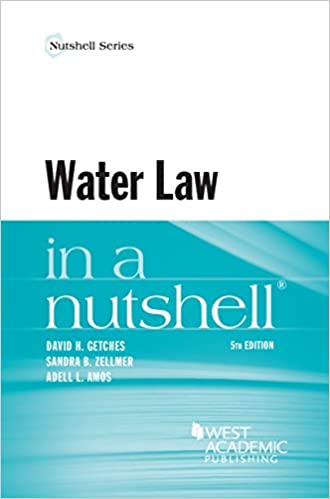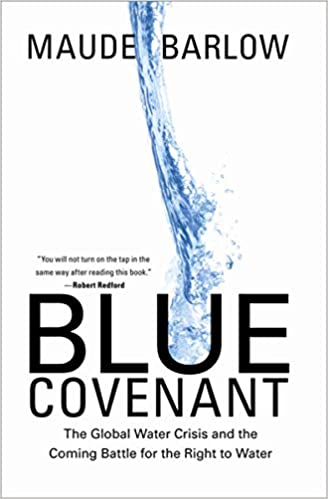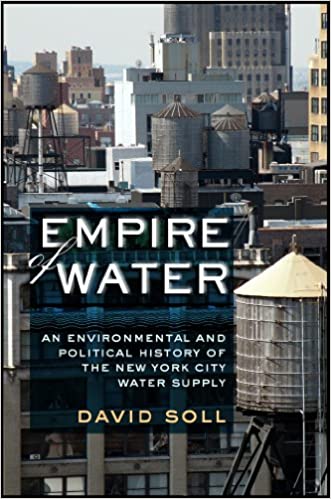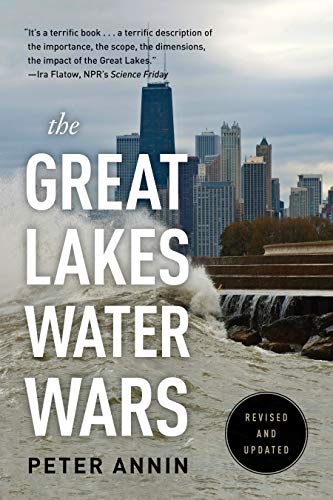
|
About the Susquehanna River Basin CommissionThe Susquehanna River is the largest river lying entirely in the United States that flows into the Atlantic Ocean. The Susquehanna and its hundreds of tributaries drain 27,510 square miles, an area nearly the size of South Carolina, spread over parts of the states of New York, Pennsylvania, and Maryland. From its source at Otsego Lake near Cooperstown, New York, the Susquehanna River flows 444 miles to Havre de Grace, Maryland, where the river meets the Chesapeake Bay. Half of the Bay's freshwater flow comes from the Susquehanna River.
States have only partial control over waters originating or flowing through their boundaries. Under the law of equitable apportionment, interstate rivers must be shared with co-riparians. Thus, each state has a right to use a percentage of the waters. Like riparian rights, interstate rights remain inchoate until they are quantified by decree of the United States Supreme Court, by interstate compact, or by Congressional apportionment. The Susquehanna River Basin Commission (SRBC) is an intergovernmental agency created by the Susquehanna River Basin Compact between the states of New York, Pennsylvania, Maryland and the federal government. The compact was signed into law by President Richard Nixon on Christmas Eve 1970 to be effective 30 days later on January 23, 1971. The SRBC superseded the Interstate Advisory Committee on the Susquehanna River Basin. The mission of the SRBC, as defined in the Susquehanna River Basin Compact, is to manage the water resources of the Susquehanna River through its own programs and by coordinating the efforts of New York, Pennsylvania, Maryland and the federal government. Its program efforts include implementation of structural and non-structural flood mitigation projects, regulation of water withdrawals and consumptive use, allocation of water resources among the member states, restoration and preservation of fisheries and wetlands, protection of future water supply (including availability of flows into the Chesapeake Bay), and protection of water quality. While the SRBC regulates water withdrawals and consumption in order to protect water quality, it does not regulate water quality. According to the SRBC website, "While our regulations are intended to be protective of aquatic resources, SRBC does not regulate and has never regulated water quality for any projects, whether for natural gas development or other purposes. The Susquehanna River Basin Compact—that established SRBC 40 years ago—directs SRBC to avoid regulatory duplication, particularly in the area of water quality. In the Susquehanna basin, water quality regulations fall in the domain of our sovereign member states, New York, Pennsylvania and Maryland, and the federal government. Since the states had already assumed responsibility for regulating water quality, SRBC consciously chose not to regulate water quality to avoid what would be an obvious duplication." The Commission consists of four members. These include the governor of each signatory state and one member appointed by the President of the United States. Under Pub. L. 110-114, the federal member is ex officio the Commander, North Atlantic Division, U.S. Army Corps of Engineers. Each of the four commissioners has a single vote. The commissioners, or their alternates, meet periodically to act on applications for projects using water, adopt regulations, and direct planning and management activities affecting the basin's water resources. Hydrofracking for gas wells is a controversial water use in the Basin. In 2011 the Susquehanna River was named the nation's most endangered river by the American Rivers Organization. According to the American Rivers website, the River earned this distinction due to the threat of rapid natural gas development in the watershed. The Susquehanna River and its tributaries flow over the Marcellus Shale region, a rock formation underlying much of New York and Pennsylvania, containing reserves of natural gas. American Rivers says that the rush to develop natural gas in the River Basin has come without consideration of the potential cumulative impacts to clean water, rivers, and human health. They refer to industry estimates that indicate the potential for 400,000 wells across the Marcellus Shale—a number that would require, conservatively, 1.5 times the annual flow of the Susquehanna River to develop by hydraulic fracturing. Already, the organization says, spills from trucks hauling wastewater, leaks from lined fluid holding pits, and cracked well casings have contaminated private water wells.
|
|

